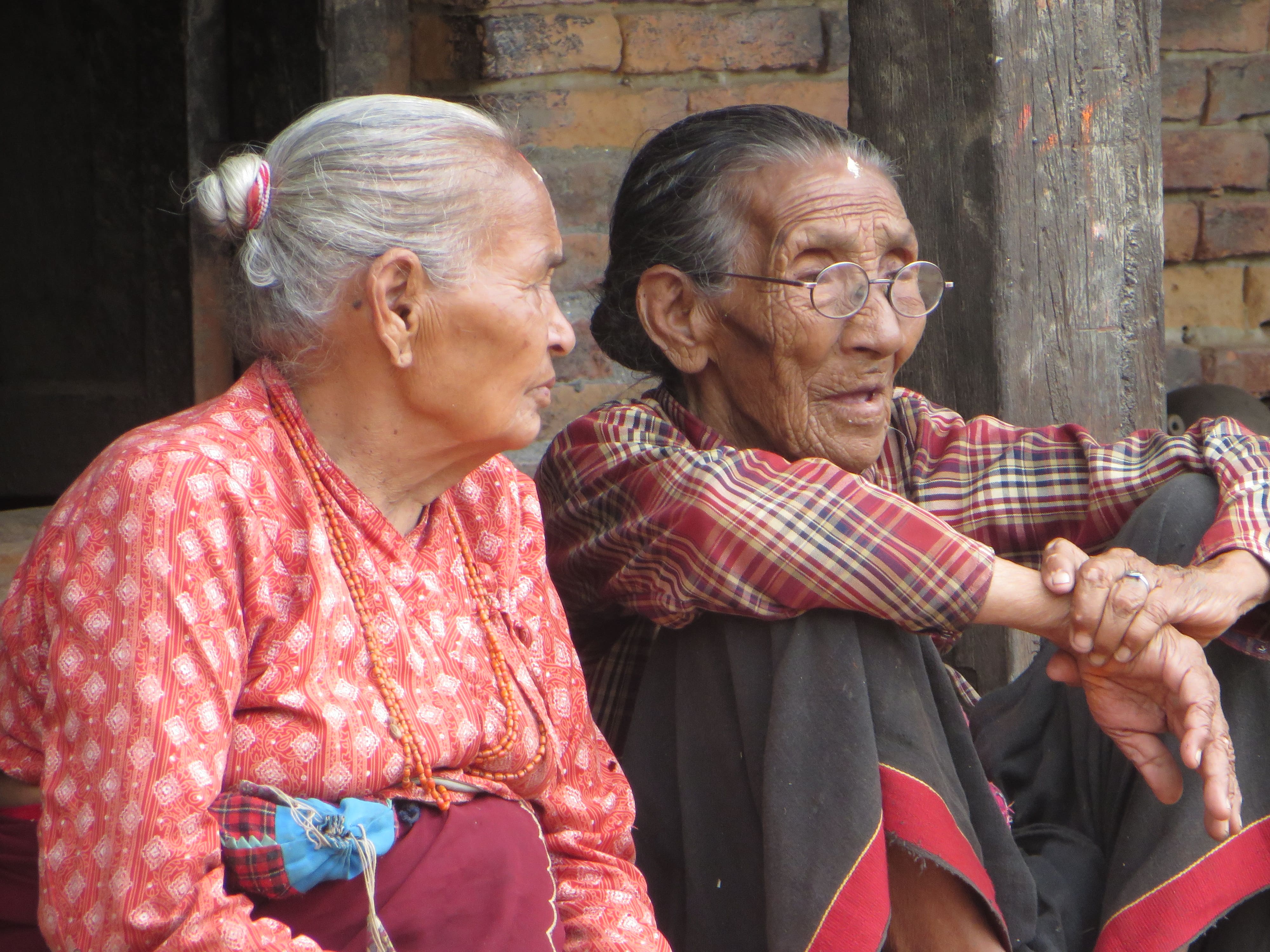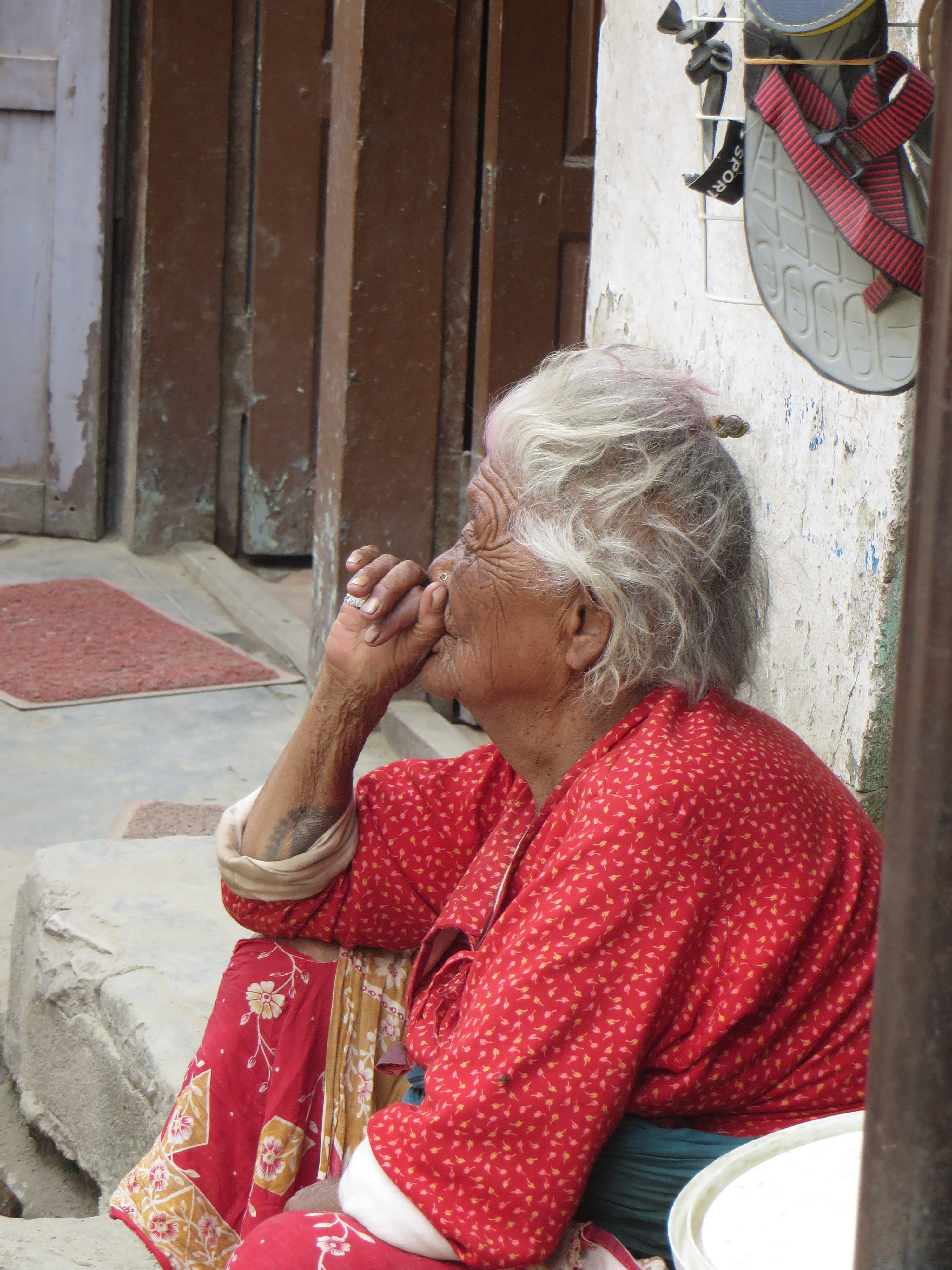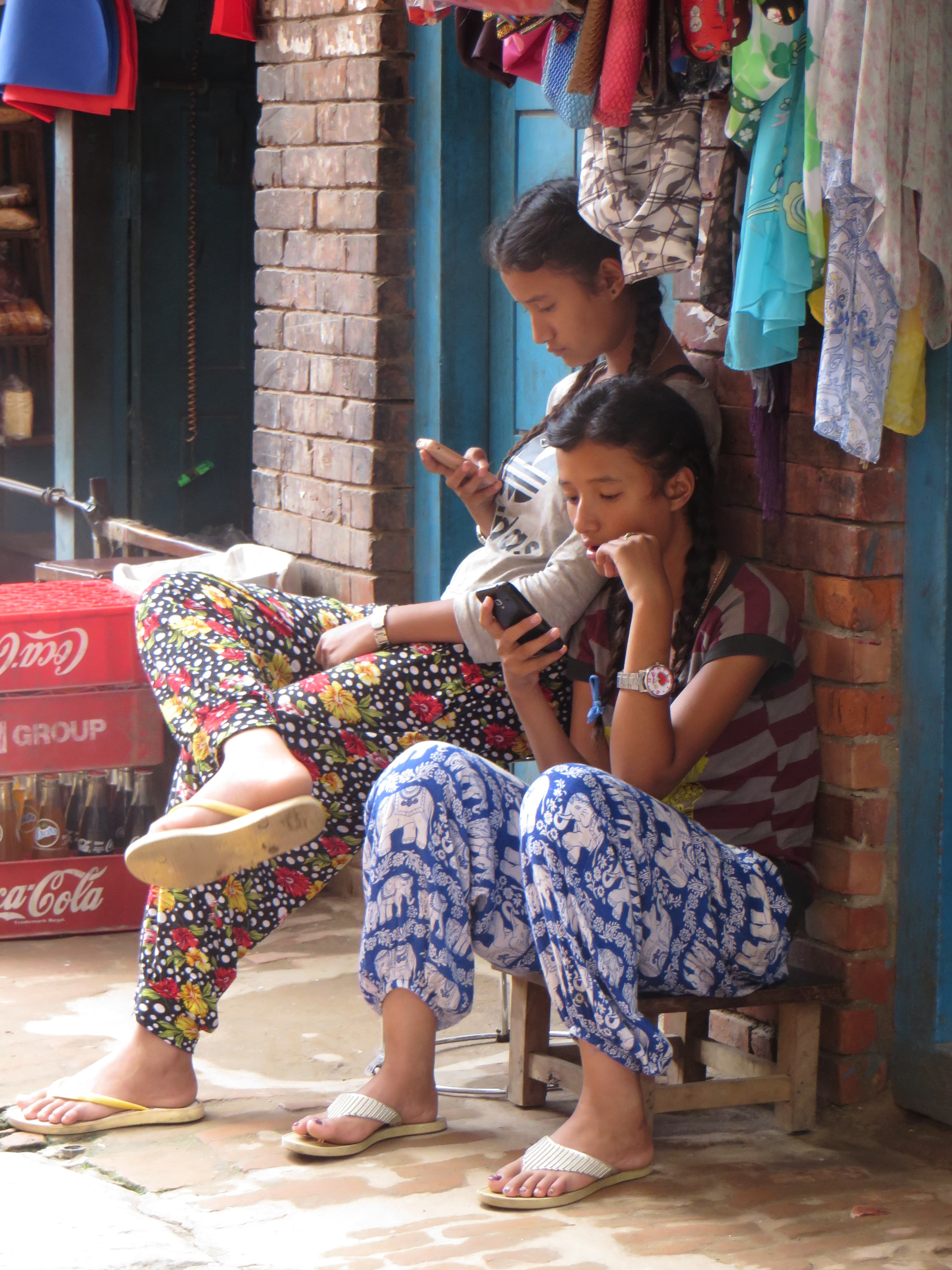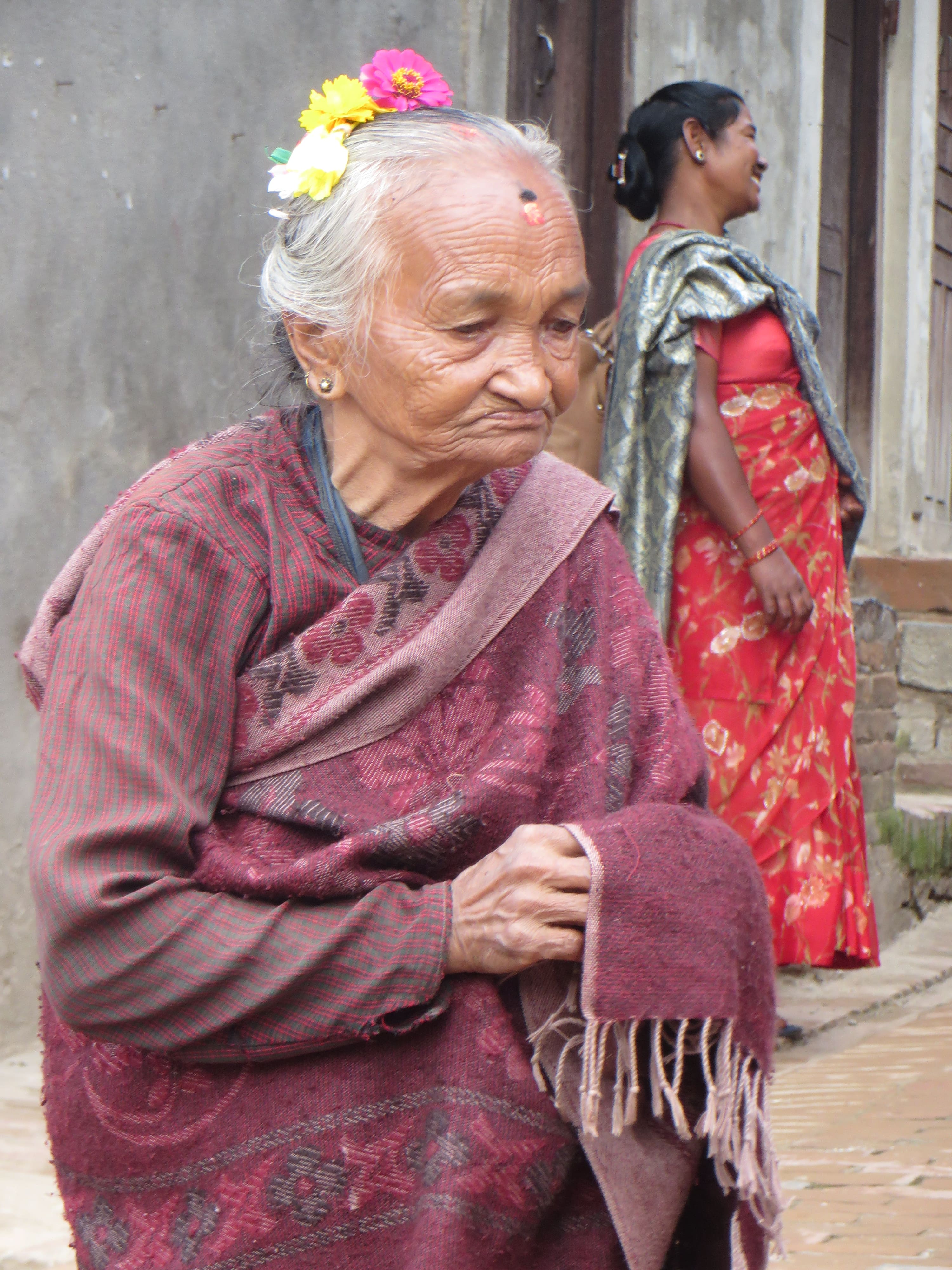
Day 5 - Women In Kind
Women in Mind, Women in Kind – there are women on the streets of Kathmandu “just like me”. Everyone is driven by an inner desire to avoid suffering and find a measure of peace. Compassion finds that sameness between humans and acknowledges that people from all walks of life are “Just like me”. So, as we’ve walked the exotic, chaotic streets and alleyways of Kathmandu we’ve found ourselves looking very closely at the Nepali women on the streets and wondering about each of them as a unique person. We’ve sat and watched so many women doing so many things, usually in the role of nurturing others or in the name of basic survival - caring, sweeping, cleaning, selling, cooking, sharing, talking, laughing.

Different cultures demand certain roles and behaviours from women, with varied expectations that may perhaps limit or expand her potential as an individual. Looking into the eyes of the Nepali women we wandered past today gave us an opportunity to reflect briefly on what may be “the life behind the woman”.
Just like me - when we considered what life may be like for these women we wondered if she may have children she loves and cares for, a job she works hard at to be productive, family members who depend on her, a home she takes care of, dreams of better things for herself and her family, or worries about her health, wealth and safety. Any or all of these would be make her a woman “just like me.” These women look different in their brightly coloured saris, adorned hair and worship dots. Yet like most women I know, we are the same, in that many women take special pride in their appearance. On the sub-continent here there is a marked difference in their worship practices. As I sat in Bhaktapur Durbar square very early this morning I watched up to a hundred of women walk purposefully across the cobblestones, carrying trays of flowers and food to deliver to the Hindu shrines in their morning worship rituals. So, like other women in mind and in different cultures we as women have beliefs in higher spiritual beings, intuition or religions.

An hour later in the market square we could now see that the women had commandeered a corner of the square to lay out orderly and colourful clusters of their fresh fruit and vegies to sell. They were industrious, hoping to get good prices and sell their wares in order to buy food for the family with their profits. From different walks of life, we can aim for the same thing, working hard to be purposeful and productive. Yet, amongst the mayhem of the market and the workplace, there are always women laughing with each, or sitting deep in conversation on the ground, or standing and gossiping next to the shrine. And just like other young women in countries near and far, there were teenage girls slumped on plastic chairs with phone in hand, completely absorbed in the world of cyberspace. Women all over the world are wonderful communicators. We love to share our stories and feel empathy for others.

Women have times of hardship. We saw youthful women with shovels in their hands working on construction sites repairing earthquake damaged buildings. There were other elderly women doing the menial tasks of sweeping the streets with small brushes or collecting the rubbish in baskets hung from their heads. Women can be uncomplaining, accepting of their lot, and may not always give themselves the self-compassion to dream that they are worthy of more.

Many women were carrying babies and toddlers, kissing and singing to them. This is the same the world over. Woman bear and raise children, and they are instinctive in their protection and care of their young. This is because women in particular are genetically wired to nurture- we are women in kind. It may be that the woman chooses to give only to others and at times may ignore the most important person to nurture first: herself.

So, how does this connect with compassion? Firstly, remind yourself that you deserve happiness and ease—no more and no less than anyone else—and that the same goes for your child, your family, your friends, your neighbours, and everyone else in the world.
“May all of us be happy. May all of us be healthy. May all of us feel safe. May we all live our lives with ease.” This is the mantra of the Mandala of compassion designed by a Dalai Lama.
Self-compassion fosters an ability to treat ourselves with understanding and concern and encourages us to be open to giving and receiving.
For Liz and myself, our eyes are now wider and our hearts have grown bigger as we’ve consciously looked for the sameness in the women from this part of the world. As we searched in their faces, we found the likeness and we felt and shared the compassion. Our best way was to share smiles with the mouth and eyes, and say Namaste (I bow to the divine in you)
And in the next few days we will profile each of the Seven Women workers and find out their challenges and dreams, difficulties and joys. By sharing the unique story of the maker of the white scarf with its wearer, we open the awareness that all people are essentially the same. The wearer of the white scarf of compassion with know that in other parts of the world, there are women “just like me”.

Mandy

